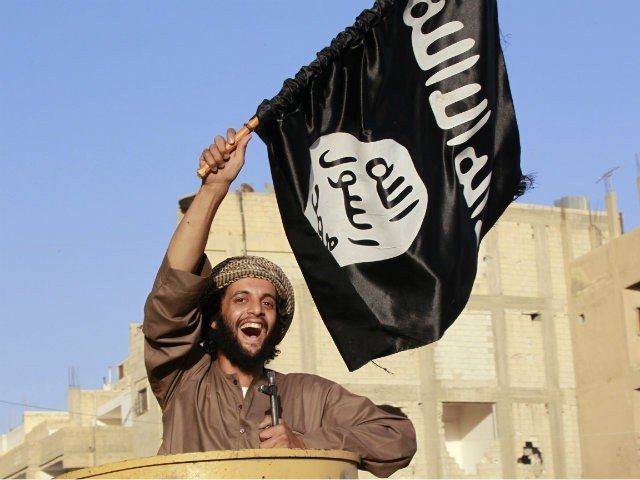A new report from The New York Times joins the long list of articles that shows the Islamic State (ISIS/ISIL) is failing at its attempt to establish a Caliphate paradise for Muslims in Syria and Iraq.
The Times related the story of one former civilian attemping to live under ISIS rule: a technician who stayed behind in Syria after his town was conquered. ISIS offered him his same job of pumping oil at three times the salary. The man accepted the offer, but soon realized the money was not worth it. It grew dangerous when ISIS started executing suspected spies. Then President Bashar al-Assad’s forces bombed the region, destroying their homes and work. He noted that watching the money coming in from oil “financing the jihadists” instead of schools and hospitals ultimately led him to make the dangerous voyage out of the Caliphate.
“We thought they wanted to get rid of the regime, but they turned out to be thieves,” said the technician.
The man eventually fled to Turkey.
ISIS has released numerous propaganda videos and photos to lure people to the territories they have conquered, in particular women and civilian men. Families, its propaganda boasts, will cement ISIS rule, as children grow up indoctrinated by the Sunni jihadists. The Islamic State has largely failed in keeping those civilians once they make the trek, however, as airstrikes and ISIS fighters acting “like an organized-crime ring rather than their defenders” scare them away. Human smugglers have managed to build an industry on sneaking Muslim civilians out of ISIS territory.
“So many people are migrating,” explained a teacher, who escaped to Turkey. “ISIS wants to build a new society, but they’ll end up all alone.”
Those who can provide essential services are no longer around. Residents in one town said the jihadists placed a construction worker, for example, in charge of medical services. In another town, the women do not have a doctor, as ISIS does not allow men to examine females.
Last year, The Washington Post also interviewed people in Turkey who fled ISIS in Syria:
In the Iraqi city of Mosul, the water has become undrinkable because supplies of chlorine have dried up, said a journalist living there, who spoke on the condition of anonymity to protect his safety. Hepatitis is spreading, and flour is becoming scarce, he said. “Life in the city is nearly dead, and it is as though we are living in a giant prison,” he said.
In the Syrian city of Raqqa, the group’s self-styled capital, water and electricity are available for no more than three or four hours a day, garbage piles up uncollected, and the city’s poor scavenge for scraps on streets crowded with sellers hawking anything they can find, residents say.
One video showed women and children begging for bread:
These reports contradict the ISIS propaganda. In January, the terrorist group used British hostage John Cantlie in a video that portrays life in Mosul, Iraq, “as business as usual.” ISIS captured Iraq’s second-largest city in June 2014.
“It’s not a city living in fear as Western media would have you believe,” he said. “It’s just a normal city going about its daily business.”
The video is no longer accessible online, but it showed Cantlie touring through filled markets and operating hospitals. People appeared content.
They also used Cantlie in a propaganda video for Aleppo, Syria, to show life in the city as productive and normal. Shots from the video included people farming, praying at mosques, and children at school.
A few months later, ISIS issued a tourism brochure to show off the glorious life in Mosul. The Daily Mail reported:
Images of the Mosul marketplace show pizzas and succulent burgers being cooked amid bustling stalls packed with all manner of sweet treats and toys for children.
Men are seen browsing the stalls nonchalantly, seemingly oblivious to the fact the city is an ISIS stronghold and on the frontline of the Iraqi regime’s freshly launched fightback against the terrorists.
Trays of sweet baklava give a sense of abundance in the crisis-hit city, which is considered key to ISIS presence in Iraq thanks to the millions of pounds generated each day from the militant-held oil fields dotted around Nineveh province.
ISIS terrorists also display photos on social media:
Despite the propaganda, more and more escaped residents from these cities paint a realistic picture of life under ISIS.
“Public support is important, and they don’t have it,” the technician told The New York Times. “People heard good words from them but didn’t see anything good come out of it.”

COMMENTS
Please let us know if you're having issues with commenting.